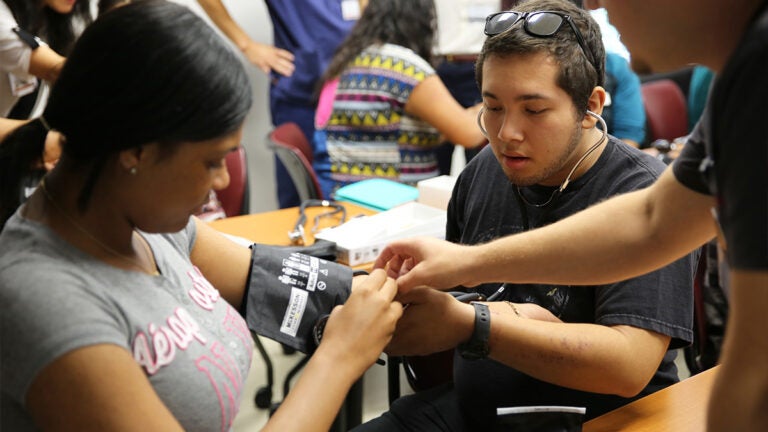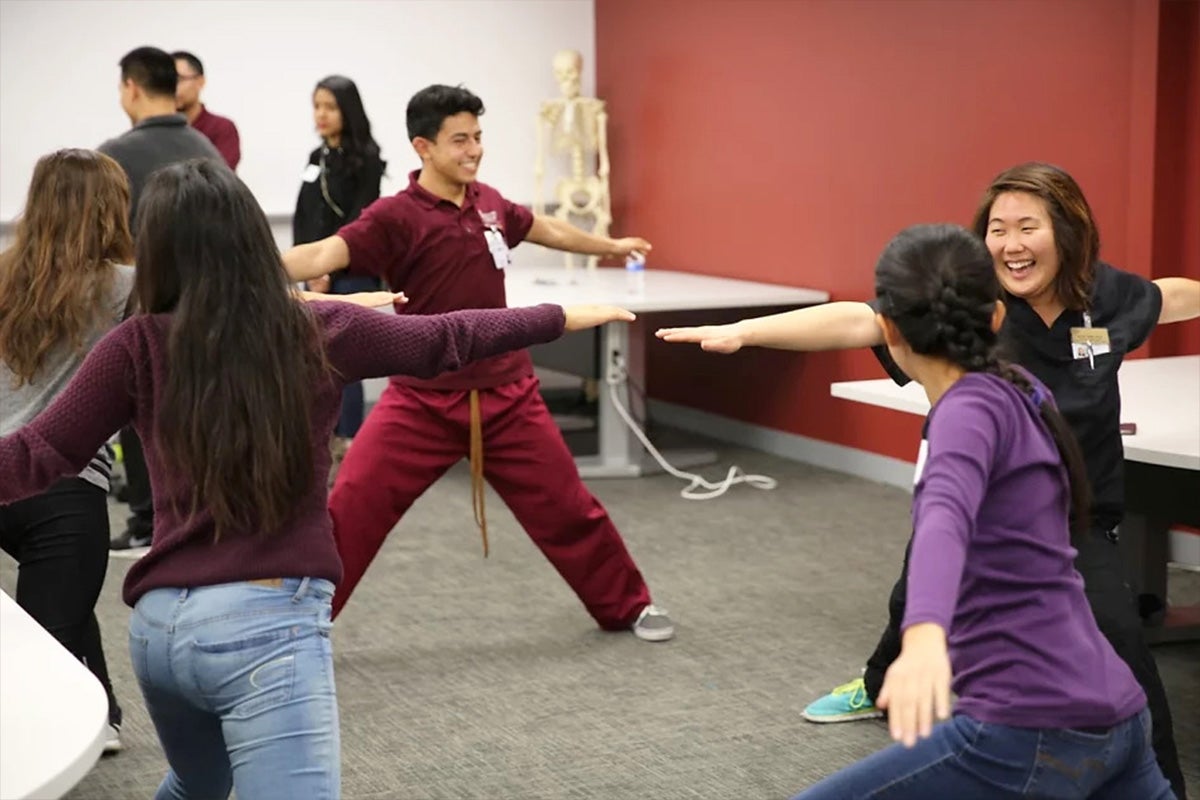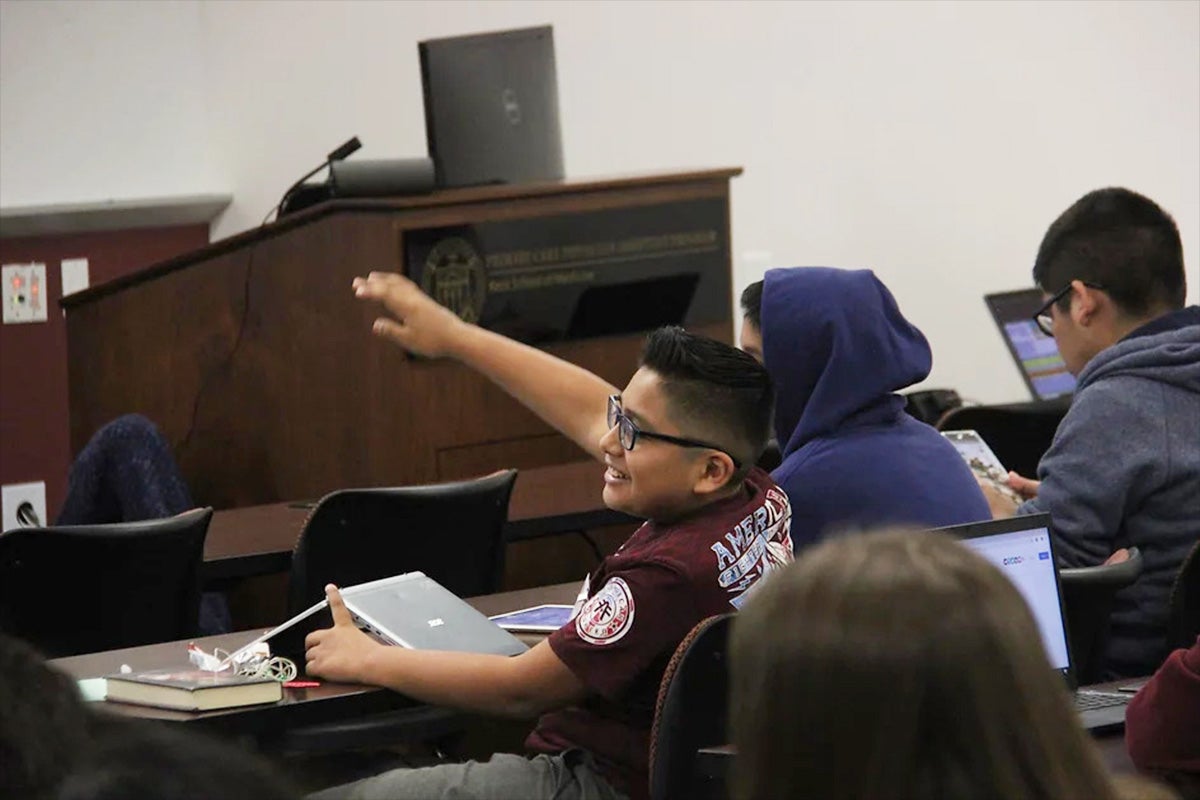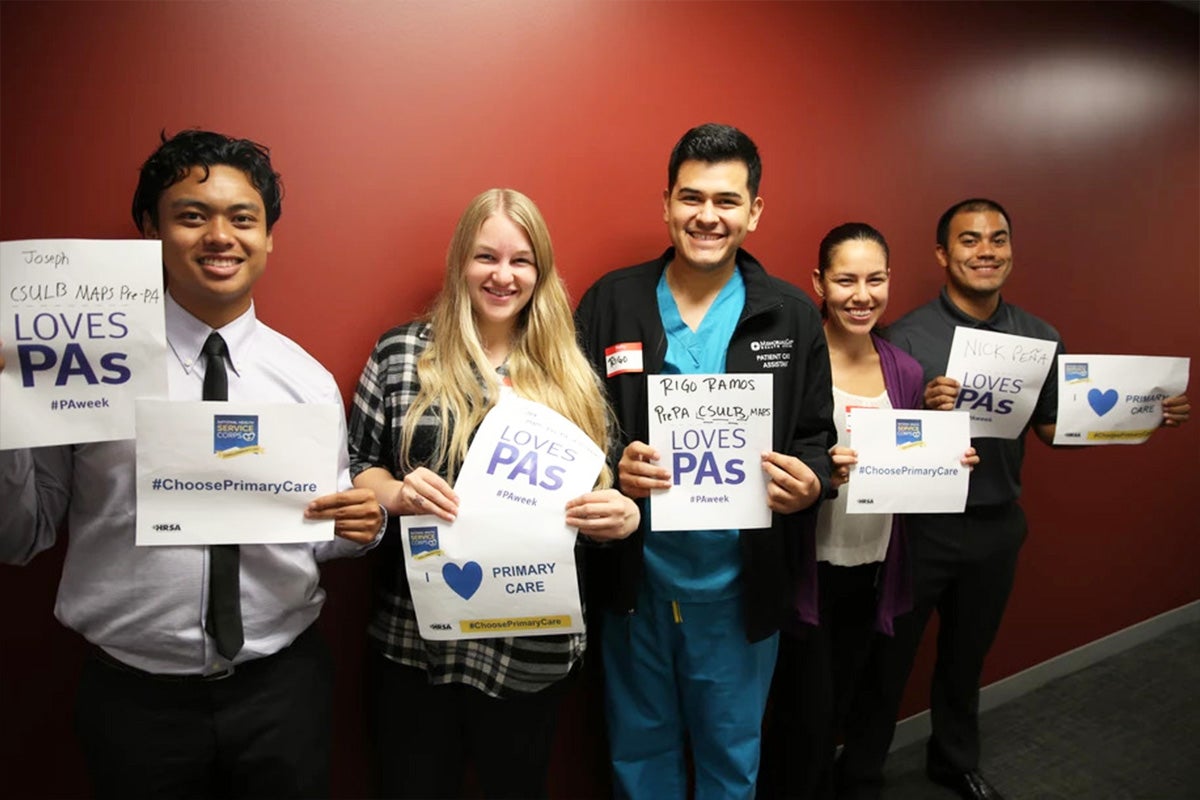
USC’s free community programs put Los Angeles students and residents on the path to health care careers.
L.A. Residents Get Their Start in Health Careers Through These USC Programs
USC offers workforce development programs to help kids, teens and adults find their future in the medical industry.
Could a career as a physician assistant be right for you? Hundreds of South and East Los Angeles residents have explored the field through a career outreach health program — one of several available through USC.
The USC Physician Assistant Pipeline Program introduces students — who range from elementary school to college — and their families to a profession that might otherwise remain a mystery. They learn about other jobs in medicine, too, like emergency services, nursing, physical therapy and primary care. They also attend workshops to develop their skills and meet with health professionals to learn about their careers.
Maria Maldonado, who runs the program, says when a student attends an event, it can touch others in their family as well.
She recalls one high school student who attended a Saturday workshop and encouraged her nephew to go, too. He came with his mother, who ended up being so inspired by a guest from an optometry technician program that she decided to join.
“The next year I saw her doing outreach for the optometry program that she was now enrolled in,” Maldonado says. “That’s always been the vision and the dream.”
The physician assistant pipeline program is one of USC’s many free workforce development health programs, part of a longstanding commitment to support Los Angeles-area communities and increase access to careers in medicine. Here are a few more partnerships that put Southern California residents on the path to medicine:
K-16 Pipeline Program
This program, a branch of the physician assistant pipeline program, connects 60 to 100 high school students from underserved areas of Los Angeles each year with professionals in fields like dentistry, nursing, pharmacy and physical therapy. The health professionals speak with students about their career interests and run workshops that teach some of the clinical skills necessary for those jobs.

Tom Bradley Mini Medical School
Once a month, USC medical students volunteer at the Tom Bradley Environmental Science and Humanities Charter Magnet School in South Los Angeles. Those volunteers talk about topics like diabetes and nutrition to stimulate students’ interest in medicine and higher education.
Health Career Academy
USC medical students teach L.A. high school students a curriculum based on the drama series ER. They cover medical challenges like heart attacks and gunshot wounds. At the end of the course, participants deliver their own medical presentation at the USC Health Sciences Campus.
LeAD (LEadership & Academic Development) and CReW (College REadiness Workshops)
Middle and high school students who live near USC’s Health Sciences and University Park campuses can get advice and pick up practical skills to help them in school and their careers through these programs. USC graduate students, faculty members and professional tutors meet with students over a 10-week period to work on everything from building a resume to dealing with stress.

Medical Counseling, Organizing, and Recruiting Program (Med-COR)
High school students of color living in underserved communities of Los Angeles County can receive mentoring and tutoring to help them get into college — with the hope that many go on to medical school. Students attend Saturday sessions where they receive tutoring in English, math and science, as well as other assistance. College students of color and USC medical students provide support. USC’s Good Neighbors Campaign and Keck School of Medicine of USC fund the longstanding health program.
Pre-PA Pipeline
The USC Physician Assistant Pipeline Program wants physician assistants to better represent the communities they serve. As such, a branch of the program called the Pre-PA Pipeline encourages people from diverse, often underrepresented backgrounds to pursue medicine. Faculty members help people apply to physician assistant programs to expand the applicant pool and ensure care providers reflect the surrounding neighborhoods. Sessions are devoted to helping participants practice interviewing, write essays and develop their resumes, among other topics.

Hippocrates Circle Program
This USC health program shows middle school students from underrepresented communities that a career as a physician is possible. School districts, hospital systems, medical schools and local doctors all take part. Medical students speak with participating students, guide campus tours and conduct medical workshops.



